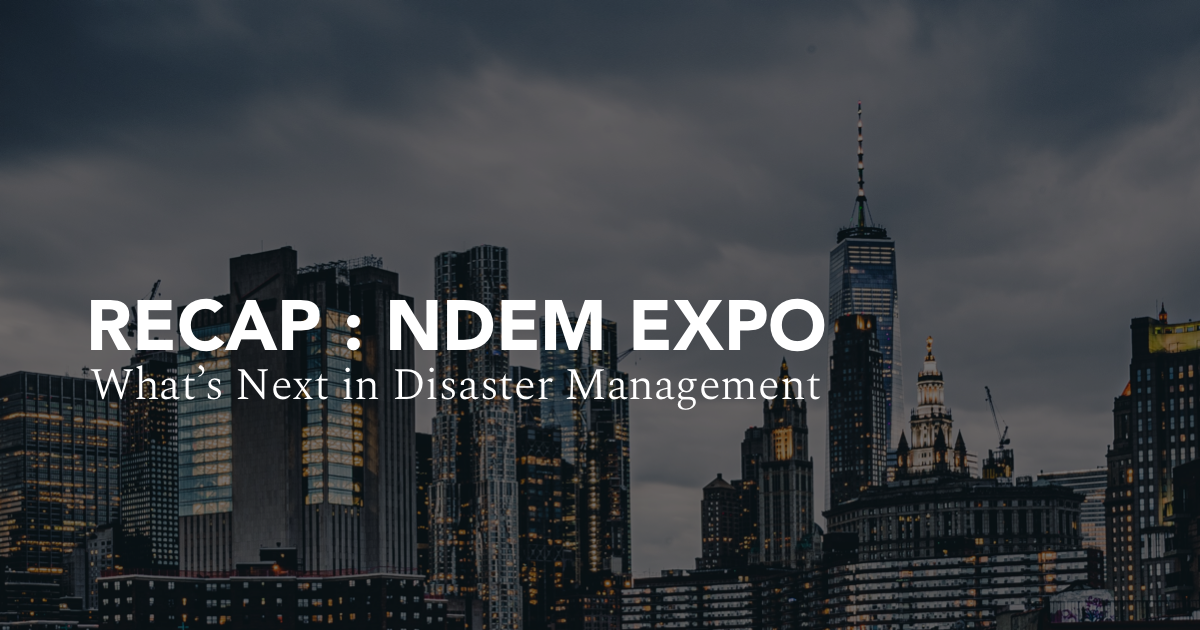
NDEM : What’s Next in Disaster Management

When it comes to disaster preparedness and management, it is so critical to continue to learn, and to know what’s next. This week, Executive Director Meaghan Enright and Operations Manager Mandy Lemley traveled to New York City to attend the National Disaster and Emergency Management Expo, a conference focused on new trends, products, and strategies in the disaster and emergency management space.
Several seminars were of particular interest, including two presentations by SBP, a nonprofit founded in Louisiana that works in disaster recovery across the country. The SBP presentations, on racial and social equity in disaster and supporting rural communities impacted by disaster, both spoke to the challenges that the U.S. Virgin Islands faces in our recovery.
Another panel of particular interest related to weather forecasting and disasters. Andrew Kruczkiewicz, a Senior Staff Associate at Columbia Climate School International Research Institute for Climate and Society spoke about integrating forecasting into decision making. For example, using seasonal precipitation forecasts to identify regions at higher than average risk of floods, and deploying resources accordingly. This type of forecasting is particularly useful for national and international humanitarian aid organizations, but can also be useful on a smaller scale when it comes to understanding local flash flooding risks.
Another area of interest presented at the conference was the potential applications of machine learning in disaster preparedness and response. For St. John and the greater U.S. Virgin Islands, we are particularly interested in the use of A.I. to expedite preliminary damage assessments in the aftermath of disasters. Expediting the timeline PDAs accelerates distribution of disaster relief funding, and AI technology can also help ensure that damage awards more accurately reflect the cost of reconstruction.
The final session on Thursday, November 17th was titled “The Next Generation : Climate Change and Disaster Management Perspectives”. Sessions like this are great examples of the high level conversations that drive innovation and progress across the industry. As Love City Strong continues to grow and expand our work in disaster preparedness, response, recovery, and mitigation, we need to keep in mind the developing impacts of climate change as well as trends and new approaches within the field. Spending a few days away from the Territory with like-minded disaster management professionals is an excellent opportunity to infuse new ideas and perspectives into our work.
